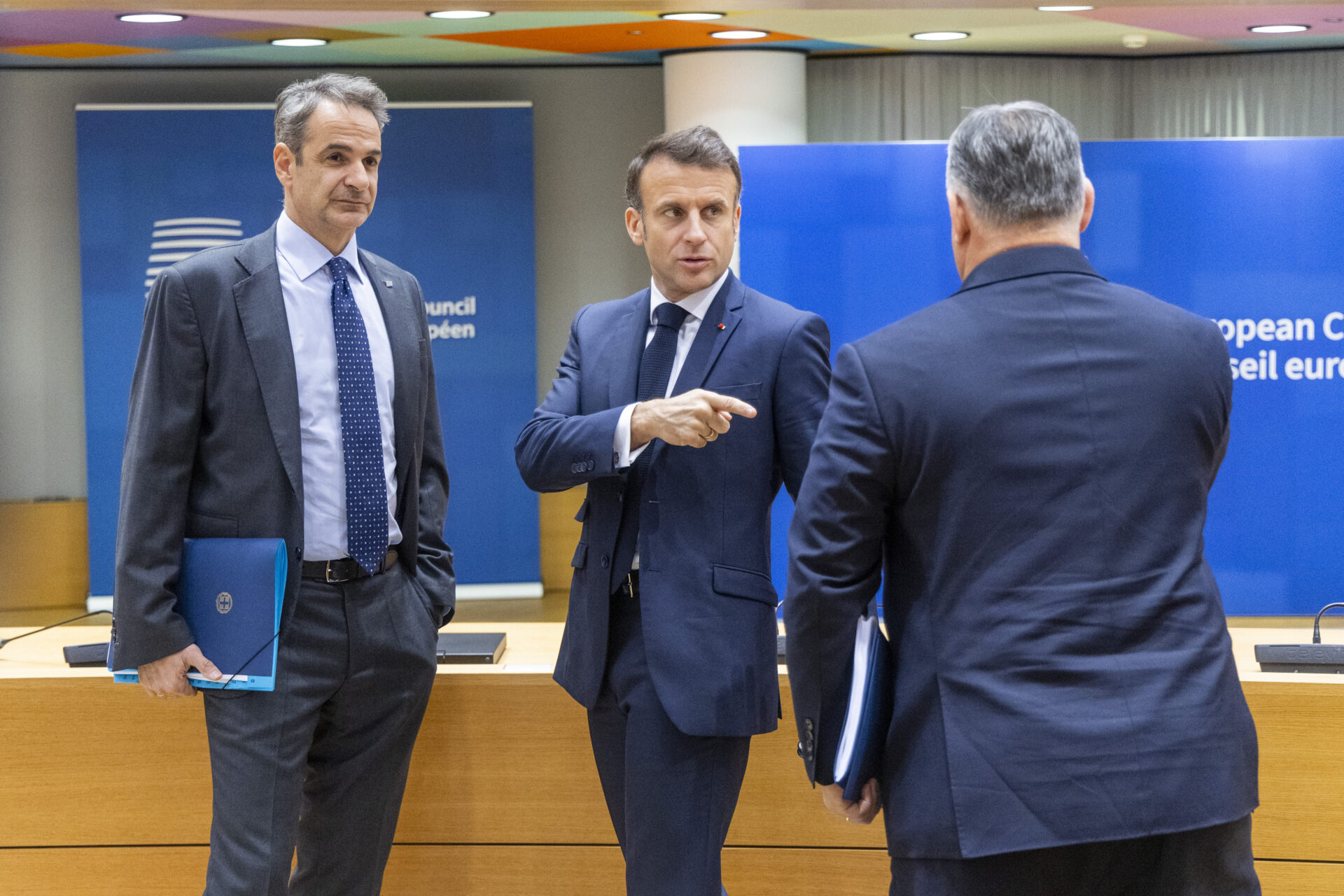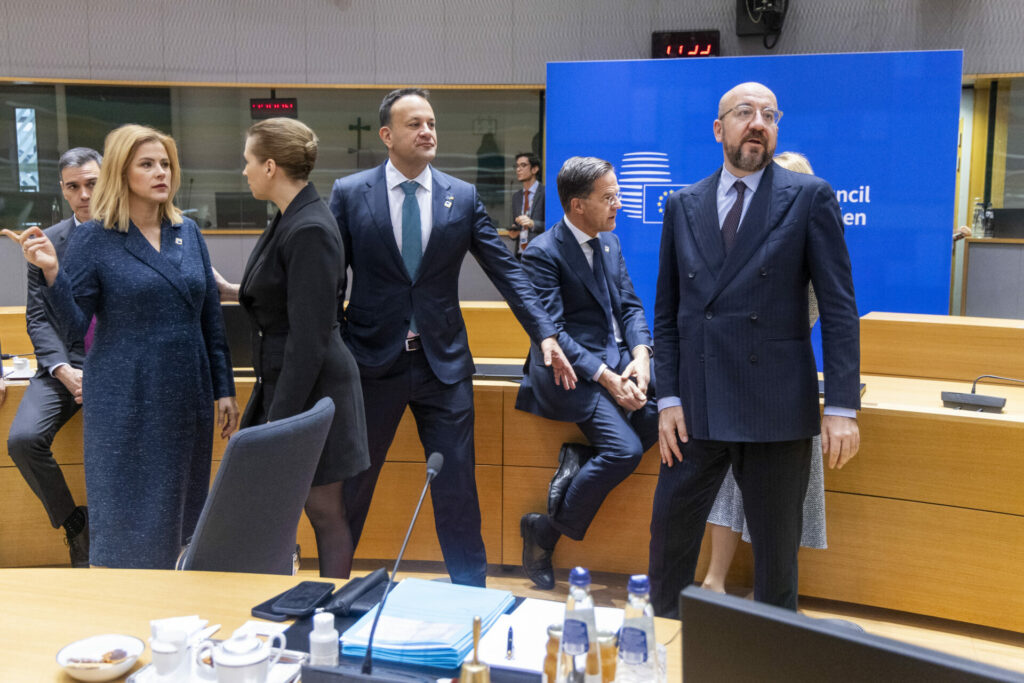Despite the initial success of opening accession talks with Ukraine and Moldova, a budgetary summit of European leaders in Brussels ended without agreement in the early hours of Friday due to a veto from Hungary – causing uncertainty about the EU’s long-term financial support to Ukraine.
It began with a promising start after a historic agreement was found earlier in the evening to initiate EU membership talks with Ukraine and Moldova despite opposition from Budapest.
Belgian Prime Minister Alexander De Croo welcomed the decision for the two eastern European countries: "The long path towards accession starts on Monday. It is a message of support for Kyiv. A signal to Moscow that aggression never works."
EU leaders and officials have also given candidate country status to Georgia. With regards to Bosnia-Herzegovina, accession negotiations will be opened once it has achieved full compliance with membership criteria. The European Commission has been asked by the Council's 27 Member States to report back on the Bosnian situation in March.
However, the EU chiefs' heated discussion on the mid-term review of the EU's 2021-2027 budget did not fulfil its aim of allocating an additional €50 billion to Ukraine over the next four years, delaying the decision until next year.
"Twenty-six member states strongly support all elements of the proposed scheme, including its priorities such as support for Ukraine, migration policy, solidarity funds, and defence. We will return in early 2024 to strive for unanimity," confirmed Council President, Charles Michel, in a statement given around midnight.
"I am relatively optimistic about the chances of success" in January, affirmed the Dutch Prime Minister Mark Rutte, emphasising that Ukraine would not run out of funds in the coming weeks. Rutte, however, raised concerns about excluding Hungary, noting the complexity of reaching intergovernmental agreements outside the European treaties.
Belgian Prime Minister De Croo also spoke candidly about Orbán's behaviour at the summit. "If you are part of the decision, [this means that] you agree with it – or afterwards you just keep your mouth shut," before correcting himself while walking away saying "I shouldn't have said that."
Budget blackmail
Ahead of the budget discussions, analysts had highlighted the need not alienate Hungarian leader Viktor Orbán with a sizeable defeat in the Council. Notably, Orbán had conceded earlier in the day to opening negotiations with Ukraine, despite Budapest’s opposition, and also the fact it rested on the successful revision of the EU’s 2021-2027 mid-term budget.
The EU wants to earmark an additional €50 billion for Ukraine over the next four years, which Orbán has said he does not want to come out of the EU budget. Hungary, meanwhile, are still waiting for €20 billion of EU funds presently suspended due to domestic rule-of-law violations.

Prime Minister of Greece Kyriakos Mitsotakis, President of France Emmanuel Macron and Prime Minister of Hungary Viktor Orban at the start of a European council summit, in Brussels, Thursday 14 December 2023. Credit: Belga / Nicolas Maeterlinck
In June, the European Commission requested an increase of €66 billion in the multi-annual budget, including €17 billion in subsidies for Ukraine. This would help the country cope with crises, soaring interest rates affecting the repayment of the post-Covid recovery plan (NextGenerationEU), and the need to fund policies for migration, tech competitiveness, and crisis responses.
Additionally, loans totalling around €33 billion would be given to Ukraine, constituting around €100 million euros to be agreed on.
With their public finances already strained, EU Member States were leaning towards drastic reductions in the Commission’s non-Ukraine-related demands by making substantial cuts in the proposals for fresh money and redirecting existing budgets.
European Council President Charles Michel proposed allocating €4 billion to migration policy, with another €17 billion in subsidies for Ukraine. With redirection of funds from the current multi-annual framework, about €9 billion euros could be freed for border management or partnerships with third countries.
This would mean that, over the next four years, Member States would contribute an additional €21 billion euros to the EU budget, less than a third of the €66 billion demanded by the Commission.
For Belgium, this would mean approximately €700 million euros over a four-year period, instead of more than 2 billion.

